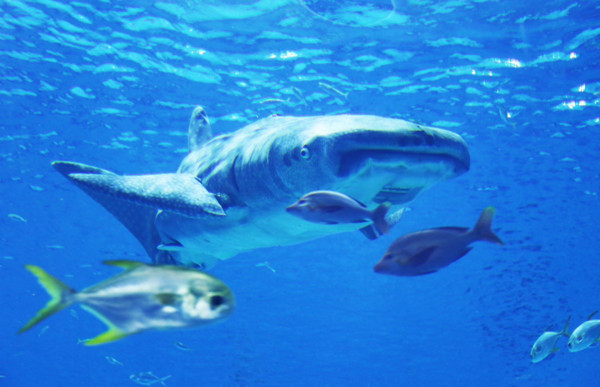Breakthrough in Marine Tech: World's First Intelligent Robotic Whale Shark Unveiled
A Chinese company has introduced a significant advancement in marine technology with the world's first intelligent robotic whale shark. Created by Shenyang Aerospace Xinguang Group, a division of the Third Academy of China Aerospace Science and Industry Corporation Limited, this development represents a notable progress in underwater robotics.
By @CGTNOfficial 🇨🇳🦈
— China4Tech🌠(@China4Tech) August 6, 2024
China Robots: “World's first intelligent
robotic whale shark developer explores
modern marine sector†| Can potentially
be used for marine reconnaissance or
scientific studies on marine ecosystem!#Robots #China #shark #marine #AI #Ipic.twitter.com/yMMeq47LSV
The robotic whale shark measures nearly five meters in length and weighs 350 kilograms. It mimics the movements of a real whale shark with impressive accuracy, including swimming, turning, floating, diving, and mouth movements. Gao Chao, designer at Shenyang Aerospace Xinguang Group's Underwater Propulsion Technology Research Office, highlighted the robot's complexity. "This is the largest bionic fish we have worked on. The whale shark has seven actuated joints, each requiring advanced computing, communication, and sensing technologies," he said.

Equipped with wireless remote control, programmed swimming, and multi-joint bionic propulsion, the robotic whale shark can reach speeds of up to 0.7 meters per second and dive up to 20 meters deep. It features optical cameras, sensors, sonar, and BeiDou positioning systems, enabling it to perform tasks like water quality monitoring, underwater mapping, and specialized missions.
Fang Xuelin, assistant director of the Underwater Propulsion Technology Research Office, explained the technical challenges involved. "When the robot operates underwater, it encounters various obstacles. Integrating data from multiple sensors is crucial. The whale shark's 'brain' is essentially a computer that processes and synchronizes large amounts of data to accurately understand its environment."
Unlike traditional propeller-driven underwater robots, this bionic whale shark has notable advantages. Its enclosed design reduces water pollution, while its streamlined body minimizes entanglement with obstacles and lowers the risk of harming marine life.
Following this achievement, Shenyang Aerospace Xinguang Group is expanding its bionic product line to include models like Yangtze finless porpoises, killer whales, and dolphins. By merging marine bionic technology with intelligent systems, the company is leading innovation in the underwater robotics field.
As exploration of the oceans advances, underwater robots become essential tools for research and development. With improvements in materials science, control systems, and artificial intelligence, bionic robots such as the whale shark are set to transform marine operations and scientific exploration.









